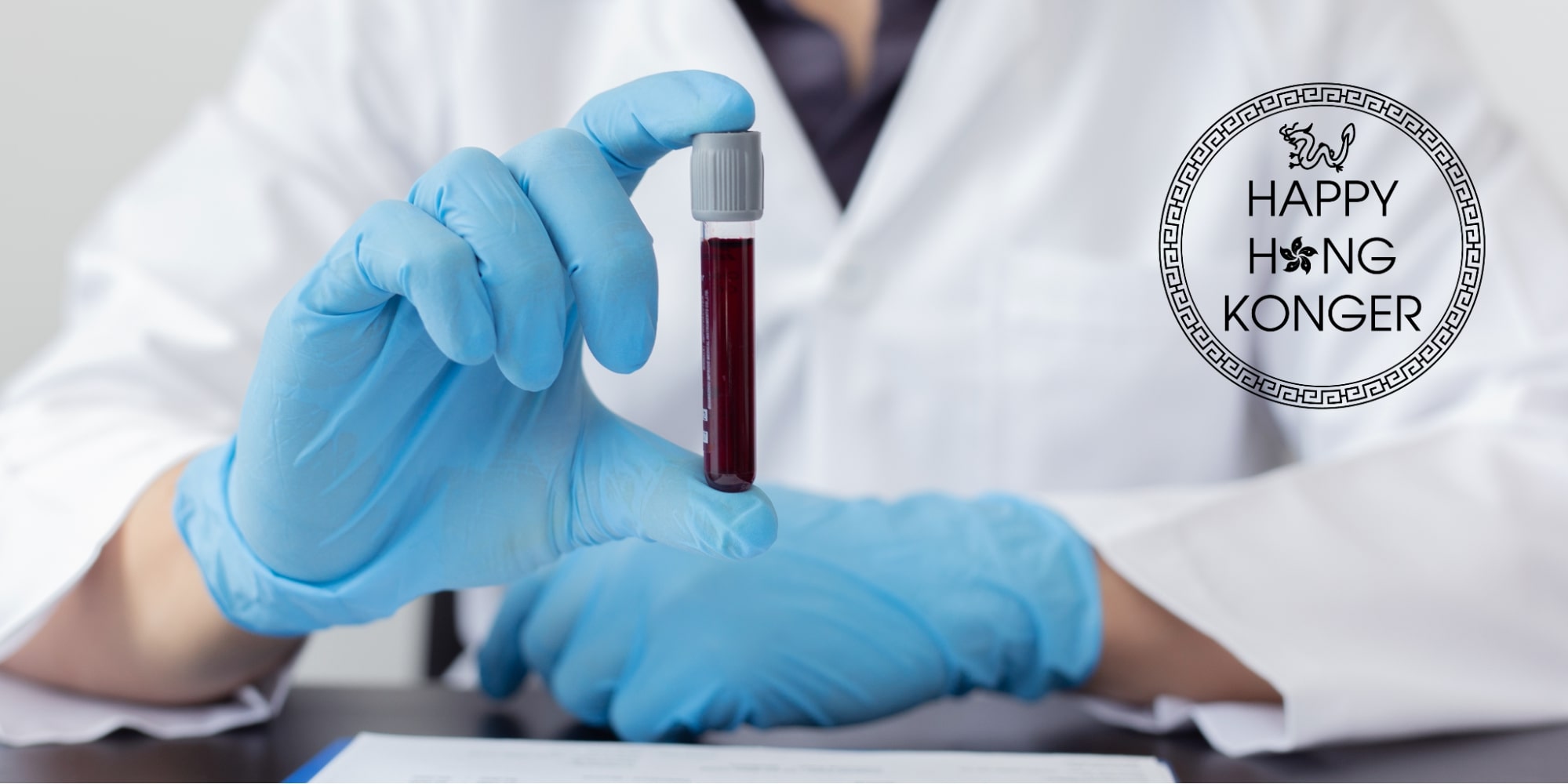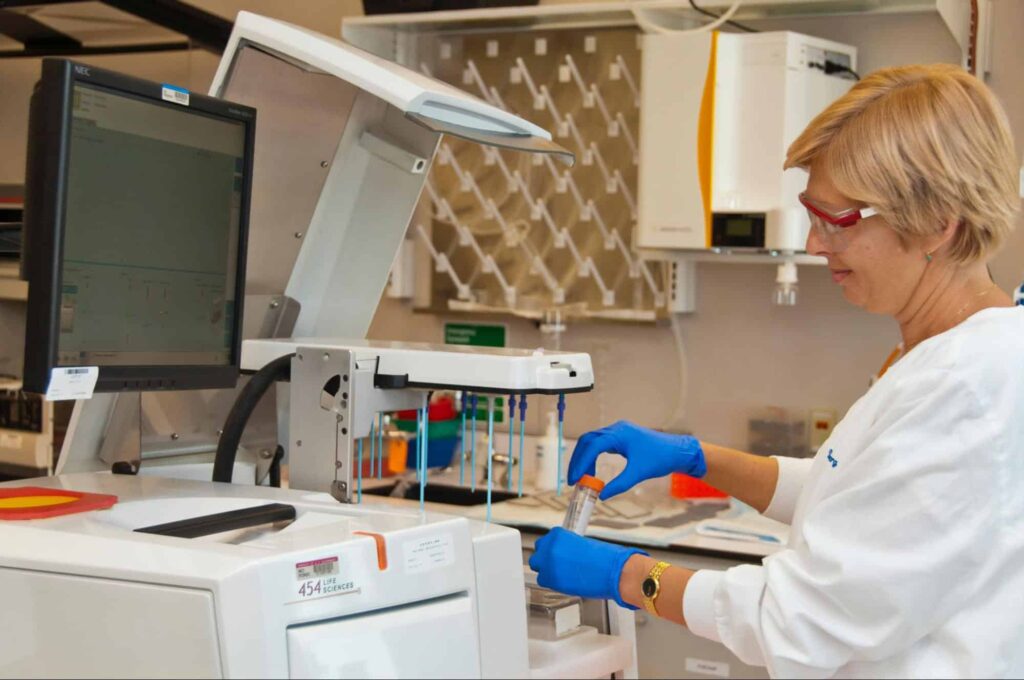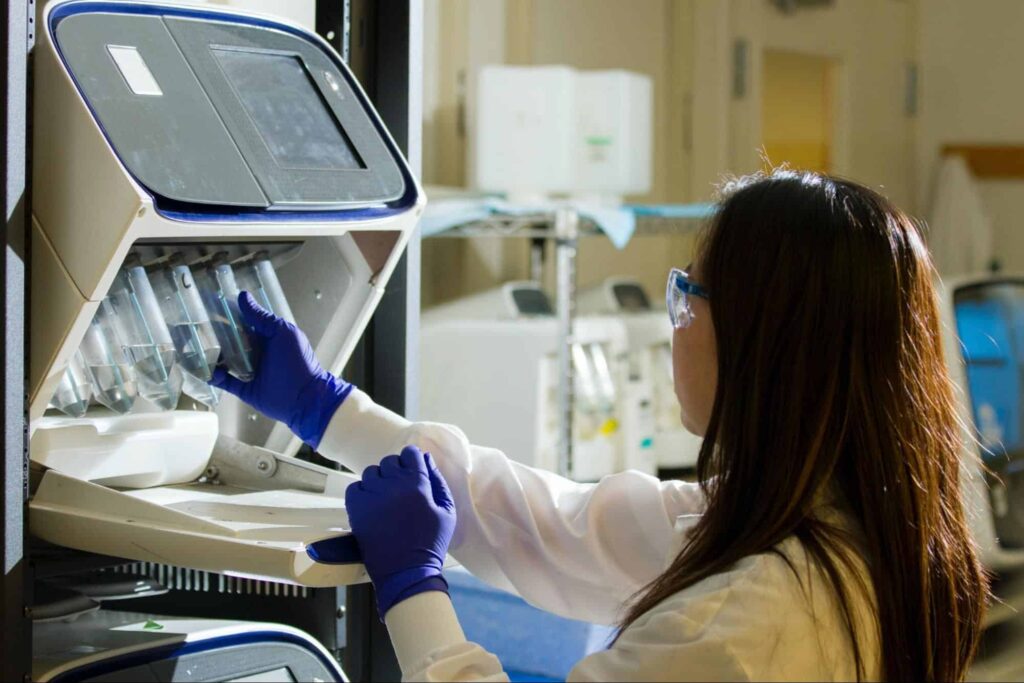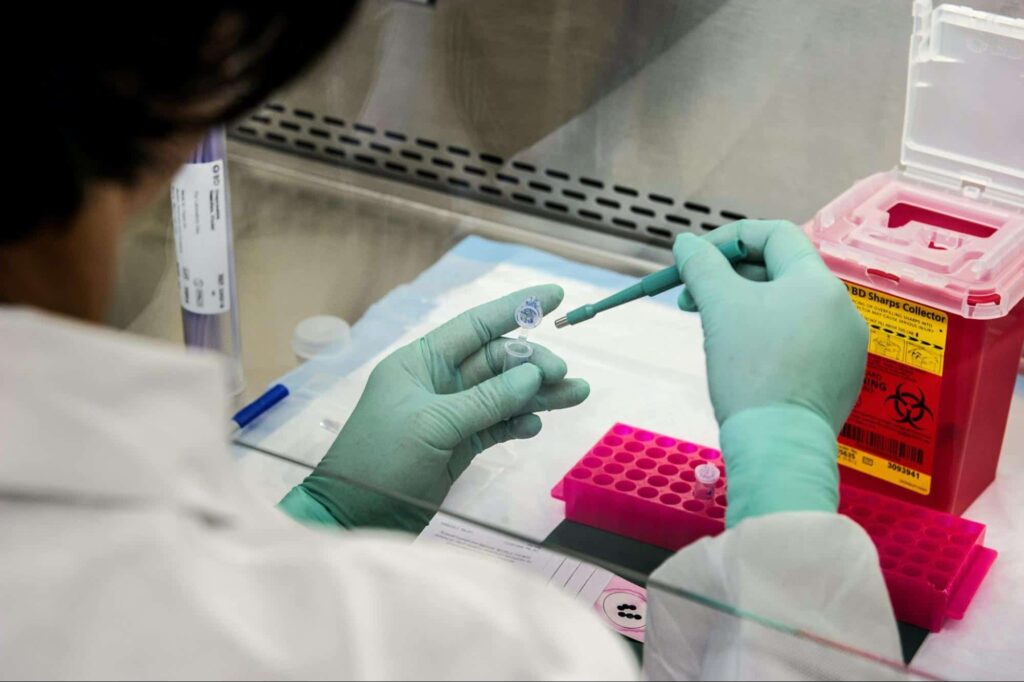Categories > Guides and Tips

Your Guide to HIV Testing in Hong Kong
- HIV Testing Centres in Hong Kong
- Gay Men HIV Testing Hotline (Department of Health)
- A-Backup
- AIDS Concern
- Hong Kong AIDS Foundation
- Types of HIV/AIDS Testing
- Test for Antibodies
- Test for P24 Antigen Test
- Test for P24 Antigen and Antibody Test (Combo Test)
- HIV RNA Test
- Can HIV be detected immediately after exposure?
- Is it possible to check for HIV yourself?
- How much do HIV self-test kits cost in Hong Kong?
- What is the HIV/AIDS hotline in Hong Kong?
Need to get HIV-tested in Hong Kong? You’re in luck, as there are many places to get that done here.
Today, we’ll provide a guide for this that can help you get the test you need. You can also learn more about the types of testing available as well as clinics and organisations that provide counselling and treatment for those who are affected.
HIV Testing Centres in Hong Kong
Here is a list of health centres in Hong Kong that offer HIV testing, as well as other related services.

Gay Men HIV Testing Hotline (Department of Health)
Service hours: Monday to Friday; 9AM–6PM
Address: 9 Kai Yan St Kowloon Bay
Contact: 2117 1069
Website: https://www.21171069.gov.hk/
Gay Men HIV Testing Hotline is a designated hotline for men who have sex with men. Those in need or who suspect exposure to HIV can contact the nurse counsellor for counselling and/or booking of appointments for HIV antibody tests.
The Gay Men Hotline provides one-stop service for counselling and arranges free-of-charge, voluntary, confidential and anonymous HIV antibody testing.
It is a one-on-one, face-to-face interview with pretest risk behavioural assessment, counselling and blood collection for laboratory tests. Referral resources will be provided when required. Telephone conversation is treated in strict confidence.
A-Backup
Service hours: Monday to Saturday; 2:30PM–9:30PM
Address: Room A1 11 Floor East South Building, 475 – 481 Hennessy Road, Causeway Bay Hong Kong Island (Near Causeway Bay Plaza One)
Contact: 3116 7204
Website: https://www.abackuphk.com/en/rapid-test
A-Backup Testing Centre offers free, confidential HIV and STD testing from Monday through Sunday and on public holidays. Only a drop of blood needs to be drawn, and the results are available in 15 minutes.
The NGO is steadfast in promoting AIDS prevention, and their free HIV testing facility was created in Causeway Bay with funding from the AIDS TRUST FUND.
At numerous LGBT establishments, including bars and karaoke rooms, A-Backup disseminates condoms and educates people about AIDS/STD prevention.
Their group meetings offer a secure setting that gives members a sense of community and an opportunity for healthy self-development.
AIDS Concern
Service hours: Monday to Friday; 9AM–6PM
Address: Room B, 17/F, 3 Lok Man Road, Chai Wan, Hong Kong
Contact: 2394 6677
Website: https://men2mentesting.com/
AIDS Concern was founded in 1990 as the first non-government charity dedicated to providing AIDS care in Hong Kong.
The organisation’s founders were a group of volunteers from various backgrounds who were committed to enhancing the quality of life for HIV-positive individuals and halting the spread of the virus.
In order to effectively control the spread of HIV, it is crucial to build strong relationships with the communities most susceptible to exposure and transmission.
AIDS Concern is devoted to delivering public health education and awareness initiatives in order to dispel myths about HIV/AIDS and build a more accepting society.
Hong Kong AIDS Foundation
Service hours: Monday to Friday; 9AM–6PM
Address: 5/F Shau Kei Wan Jockey Club Clinic, 8 Chai Wan Road, Shaukeiwan, Hong Kong
Contact: 2513 0513
Website: https://www.aids.org.hk/
In 1991, the Hong Kong AIDS Foundation was founded with the advocacy to stop the spread of HIV/AIDS in Hong Kong.
Hong Kong AIDS Foundation is a group of individuals from various spheres of society who care about the welfare of the community who came together to form the organisation.
This was motivated by the general public’s lack of understanding of AIDS and widespread misconceptions about people living with HIV/AIDS decades ago.
Types of HIV/AIDS Testing

There are several different types of HIV tests. Some classify tests based on what is tested, as it is possible to test for HIV using blood, saliva, or urine samples.
However, the consensus among scientists is that the most reliable method is through blood testing.
To detect an HIV infection, note that three biochemical indicators can be examined in these samples. This brings up another way of classifying HIV tests (based on what you’re testing for instead of what type of sample is being tested).
Here’s a look at the available types of HIV testing offered by clinics in Hong Kong.
Test for Antibodies
The most popular and accepted test is this one. A sample of blood, saliva, or urine may be used since this is where HIV antibodies are found.
Now, the recommended window period for this test is worth noting. For clarity, “window period” refers to the interval between HIV exposure and the time at which a test can identify HIV in your body.
For antibody tests, the recommended window period is 3 months.
This is because it can take up to 3 months for blood antibody levels to reflect HIV infection.
However, it can also take as little as 3-4 weeks after infection for that to happen.
Since not everyone will fall into the category of people whose infections can be detected 3-4 weeks post-exposure, it’s considered safer to use the outer limit (3 months) as the window period.
Test for P24 Antigen Test
The early stage of an HIV infection is when the p24 protein is generated, and this is what the p24 antigen test measures.
Due to the first burst of virus replication, this protein is detected earlier than HIV antibodies. It is linked to high levels of the virus during which the person is extremely contagious.
P24 may typically be detected two weeks after infection, and a positive result is quite specific for an early infection, with a specificity of 99.7 to 99.9%.
However, the development of antibodies may cause the amount of p24 to drop after 4 weeks of infection.
Test for P24 Antigen and Antibody Test (Combo Test)

This is the 4th-generation HIV test and it can identify both p24 antigens and antibodies. Due to this, it has a testing window of only 2 weeks after exposure.
This increases screening accuracy and lessens the stress of a 3-month wait. Within 24 hours of the time a blood sample is taken, the “combo” test’s findings may even be available.
The test is fairly new, as the Federal Drug Administration (FDA) of the United States only approved the “combo” test in 2010.
Blood banks now use it to screen donor blood as well. The majority of international guidelines, such as those from the British HIV Association (BHIVA), recommend 4th generation HIV testing be done a month following exposure due to the many test kits in use.
Just bear in mind that even with this test, certain international recommendations (like those of the WHO European STD Board) still advise repeat testing 3 months later.
Anyway, if you want to get this test done, two FDA and CE-certified HIV combo testing systems are available in Hong Kong, including Neo-Lab at the Hong Kong Sexual Health Centre.
HIV RNA Test
Within a week of exposure, the HIV RNA test, often known as the HIV PCR test, can identify an infection. This is because the test is extremely sensitive to viral load / viral copies in blood.
However, the test requires specialised personnel and equipment, and it could take up to 2 or 3 days for the results to be made accessible.
| Type of HIV Testing | Window Period | Pros | Cons |
| Test for Antibodies | 23–90 days after infection | Multiple bodily fluid samples may be used for the test (blood, saliva, urine). | Longer waiting time to get the results. |
| P24 Antigen Test | 1–8 weeks after infection | Can detect the virus as early as 3 weeks after infection. | The test is usually not used by itself. It needs a confirmatory test after a positive result. |
| Combo Test (P24 Antigen and Antibody Test) | 2 weeks | Extremely accurate, more reliable in detecting early infection than rapid tests. | Only available as a blood test. |
| HIV RNA Test | 10 days after exposure | Shortest window period. Can identify how much genetic material from HIV is in the blood. Used to screen blood donations for HIV and other conditions like hepatitis B. | Gives more accurate results up to 33 days after possible exposure. |
Can HIV be detected immediately after exposure?
HIV can’t be detected immediately after infection. This is due to the window period, which is the interval between HIV exposure and the time at which a test can identify HIV in your body.
Depending on the type of HIV test, a window period applies. Typically, a nucleic acid test may identify HIV the earliest (about 10 to 33 days after exposure).
Refer to the table we provided earlier for the window periods for each type of test.
Is it possible to check for HIV yourself?
HIV self-testing enables individuals to perform an HIV test and receive their results in the privacy of their own home or another location.
Although consumers can buy HIV self-tests at retail stores, the CDC urges health departments to take HIV self-testing into account as an additional testing option to reach people who are most affected by HIV.
Self-testing for HIV holds significant potential for people to be aware of their HIV status, but there are a few concerns, such as the following:
- The accuracy of self-testing kits
- The interpretation of results from the kits
- Access to post-test services
- Risks of post-test HIV risk behaviour
Self-testing users may misinterpret HIV test results and miss the chance to be connected to care services if they receive insufficient support, which could have detrimental effects on public health.
If self-testing is properly incorporated into the current healthcare system, it has a significant potential to enhance the uptake of HIV testing and can contribute significantly to the HIV cascade of care.
How much do HIV self-test kits cost in Hong Kong?
There are currently no laws governing the production, import, export, sale, and use of medical devices in Hong Kong (including HIV self-test kits).
However, customers can buy self-test kits over the counter at pharmacies or from a number of authorised internet retailers. The cost of an HIV self-test kit on the open market ranges from HK$200 to HK$400.
What is the HIV/AIDS hotline in Hong Kong?
The AIDS Counselling and Testing Service (ACTS) provided by the Hong Kong Department of Health’s Special Preventive Program operates on the basis of volunteer counselling and testing (VCT).
ACTS offers VCT services by specially trained nurse counselors, which can be reached through two hotlines, the AIDS Hotline (852) 2780 2211 and the Gay Men HIV Testing Hotline (852) 2117106.





